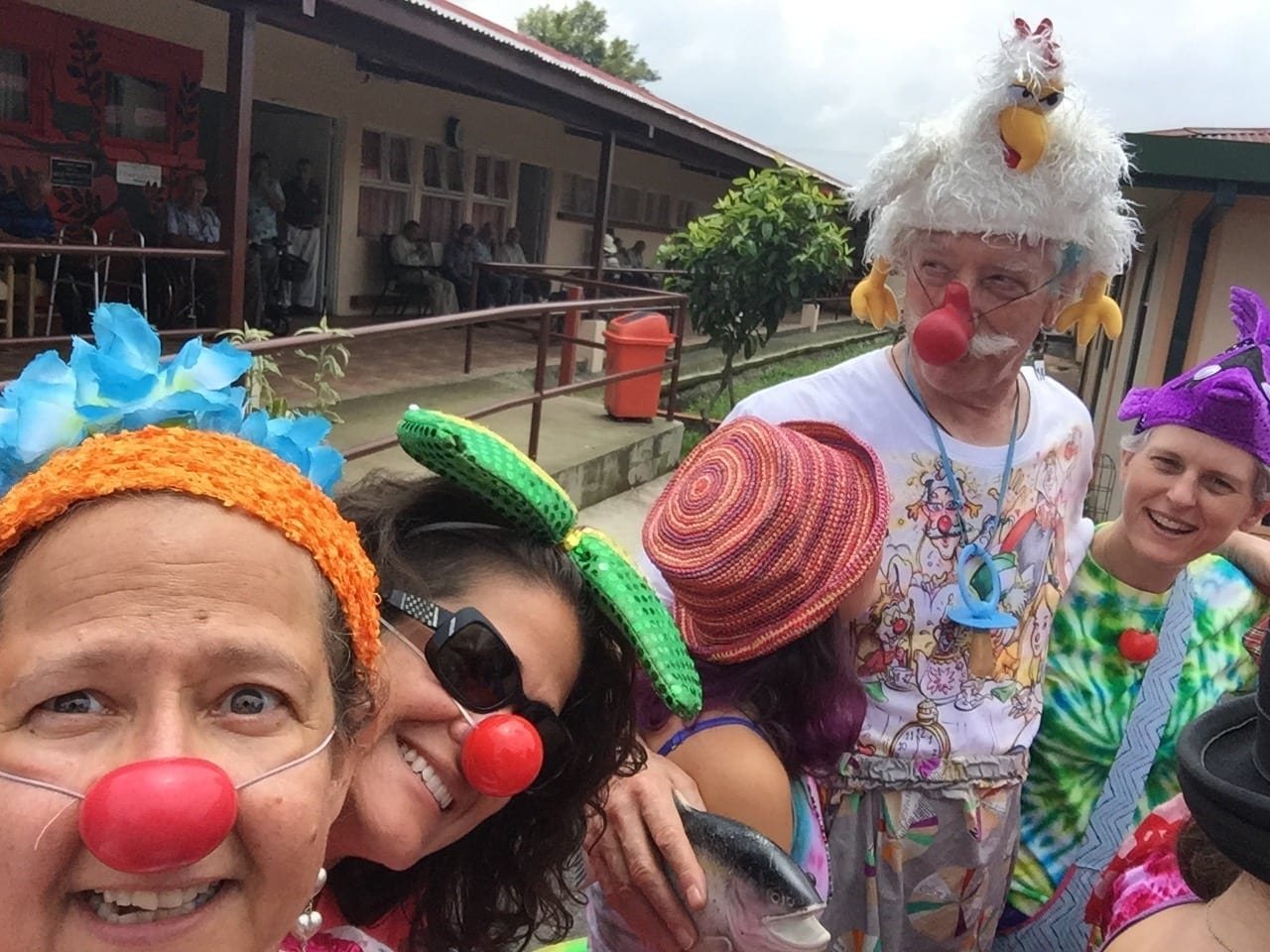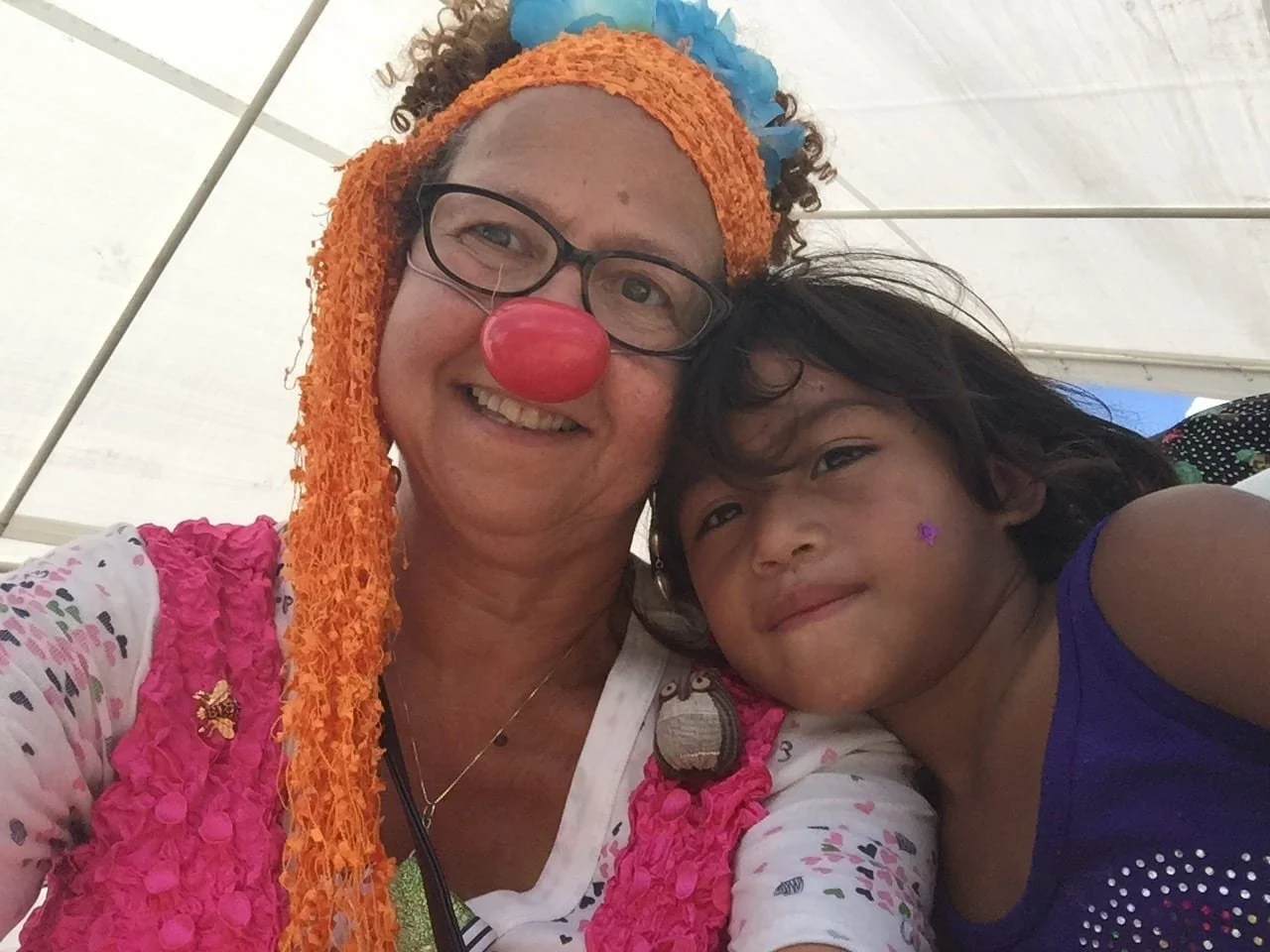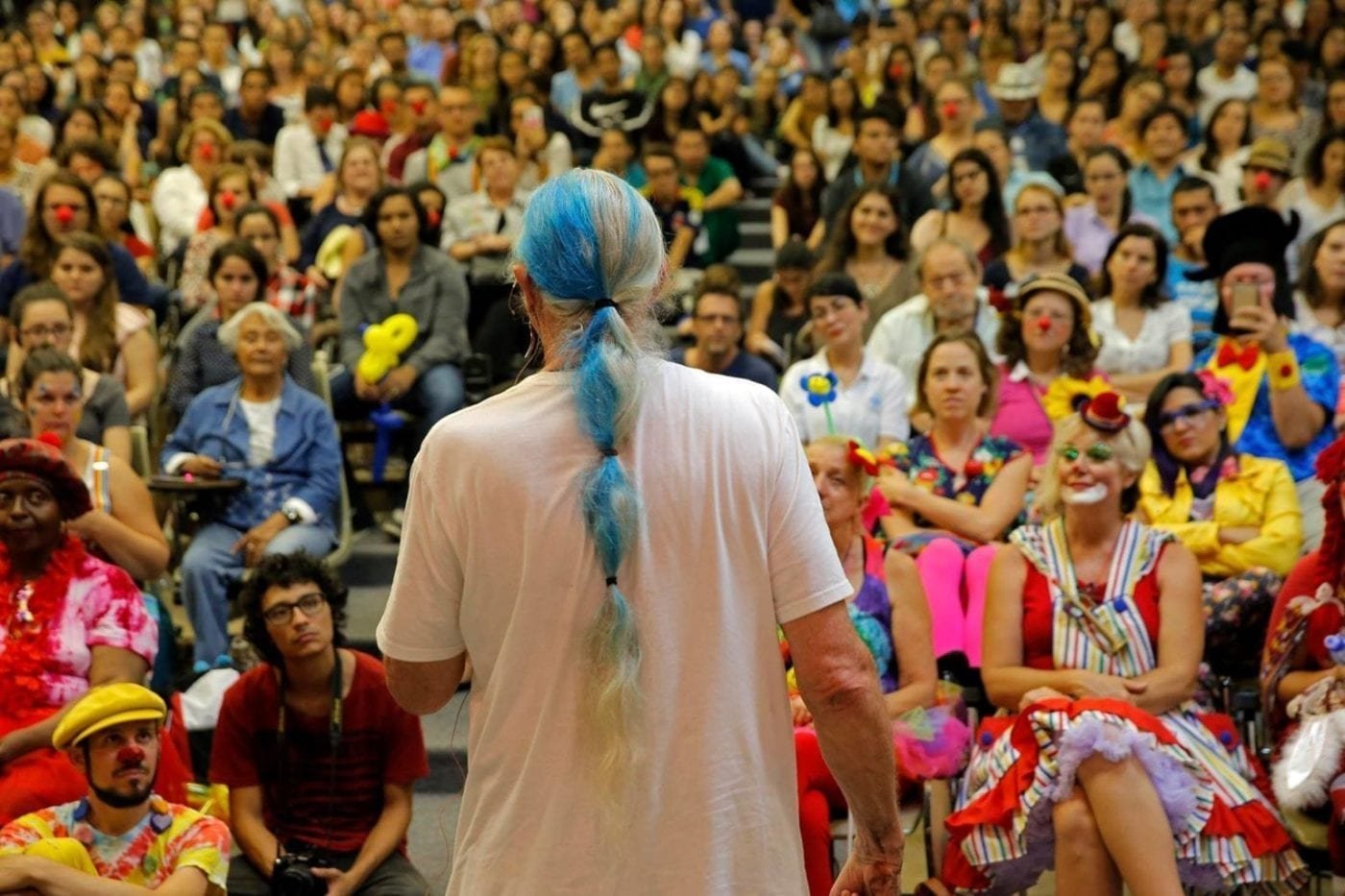Clowning and Caring in Costa Rica
THIS POST WAS WRITTEN IN 2016
I recently returned from a week in San Jose, Costa Rica with Patch Adams, M.D. and 45 other humanitarian clowns. Patch Adams is well known from the Hollywood version of his life, starring Robin Williams. The real Patch Adams is an activist for peace, justice and care for all people. As he says on his website: "My life has been a dance with humanity." What an honor to be part of his ensemble of healing clowns!
I first met Patch through our mutual friend, Dr. Lois Holzman and my longtime mentor Dr. Fred Newman. Our paths crossed again during the last two Performing the World (PTW) conferences, when Patch led workshops and attended sessions. Two years ago I followed him around at PTW and at the end of the conference he gifted me with rubber snot and said, "I don't give many people 'the snot,' and it's rare that I give it to women, because they tend not to wear it." I was honored. Here I am wearing the snot waiting for Patch to begin his lecture at Costa Rica University surrounded by some of the students who came dressed as clowns.
As a longtime community organizer, political and performance activist, it was enormously inspiring and gratifying to study and play with Patch and the other key organizers for the trip, Susan Parenti, the founder of the School for Designing a Society, Dario Solina and Mark Enslin. I learned a great deal from each of them. We spent two days clowning and caring in La Carpio, the slums of San Jose where mostly undocumented Nicaraguan immigrants live in dire poverty right next to the landfill garbage dump for all of San Jose. The other days were spent clowning and caring in a nursing home, a school for disabled children, a women's prison, a psychiatric hospital and at San Jose University, where Patch gave a lecture to medical students and others in a public forum.
In workshops with Patch and Susan we used the activity of writing "false statements" as a way to envision a better world. What do we want, for ourselves and for our world, even if it is not yet true? The first false statement that I wrote is "There is no poverty." Later we wrote the intermediary steps towards making our false statements a reality. I wrote the following as my intermediary step towards making "there is no poverty" a reality: Those of us with privilege must use and give it to build and create something new with what is. I am more inspired than ever to do this through my work in New York building the All Stars Project , organizing in the poor community with Dr. Lenora Fulani and others.
This is La Carpio
There aren't a lot of words to express the experience of being in La Carpio with the community of caring and loving clowns, but I will attempt to give some flavor with a few words and some photographs. We began by parading through the neighborhood, clowning with the community - young and old. "Payasos!"
One set of parents beckoned me into their home where they showed me their teenage daughter who was disabled in some way - it was hard to tell what she suffered from. They were clearly asking me to cheer/comfort her, which I did. I was very touched by their wisdom and by the development that has been created in this most poor community by local organizers and by yearly visits by Patch and his invading force of loving and caring clowns. It was very meaningful to be invited into their home.
We organized as many adults and children as possible to join us as we headed to the small (concrete) park for a show.
A little girl took my hand and wanted to walk with me (pictured below). She was delightful, so full of life; she was chatting up a storm with me! I kept smiling, listening and saying, "Si!" I learned that language is never a barrier to love someone. She had no shoes on. Shoes are a very sought after commodity in La Carpio. We take it for granted that people have shoes in our part of the world. Also below is one of my favorite photos; I am sitting with a woman who is sorting through a bag of used shoes to see which can be recycled. I was simply there to be with her. Occasionally I'd nod as a way of agreeing that a pair of shoes looked worth keeping. Clowns do not have to be funny, but they do need to be loving.
It was a hot, sunny day so at some point I pointed to the little girl's feet and asked, "Caliente?" She nodded yes. I tried to carry her but she was too heavy. I asked one of the local male student clowns to help and I saw her later in the park - my sweet friend .I learned a lot about the simplicity of play and it's healing power. We sat in the park waiting for performances to begin and I handed a small percussion "egg" to a little girl and when she shook it I danced in my seat, and when she stopped, I stopped. Her laugh was so wonderful! The simple joy of play!
During Patch's lecture at the University he focused on reframing the idea of the clown. Clowning is loving humanity, "it is a trick to get love close." Patch shared what I discovered is very true: "If you are fully dressed as a clown you can love the world, and the world will love you back." So much of medicine as practiced by most is a "vulgar business." For Patch and his followers "The unencumbered practice of care is an ecstatic experience." This was certainly my experience. Patch chose to use his life to alleviate suffering. He takes clowns into war as "soldiers of love," going to refugee camps and into the rubble of Haiti post-earthquake, as a few examples.
He reframed the clown as a "love revolutionary" and an "ambassador who is welcomed as a relative." I experienced all of this. Importantly, Patch shared that this kind of clowning is not about funny. To the extent to which we are funny in our clown costumes it is important to remember that, "Funny is a trick to get love close."
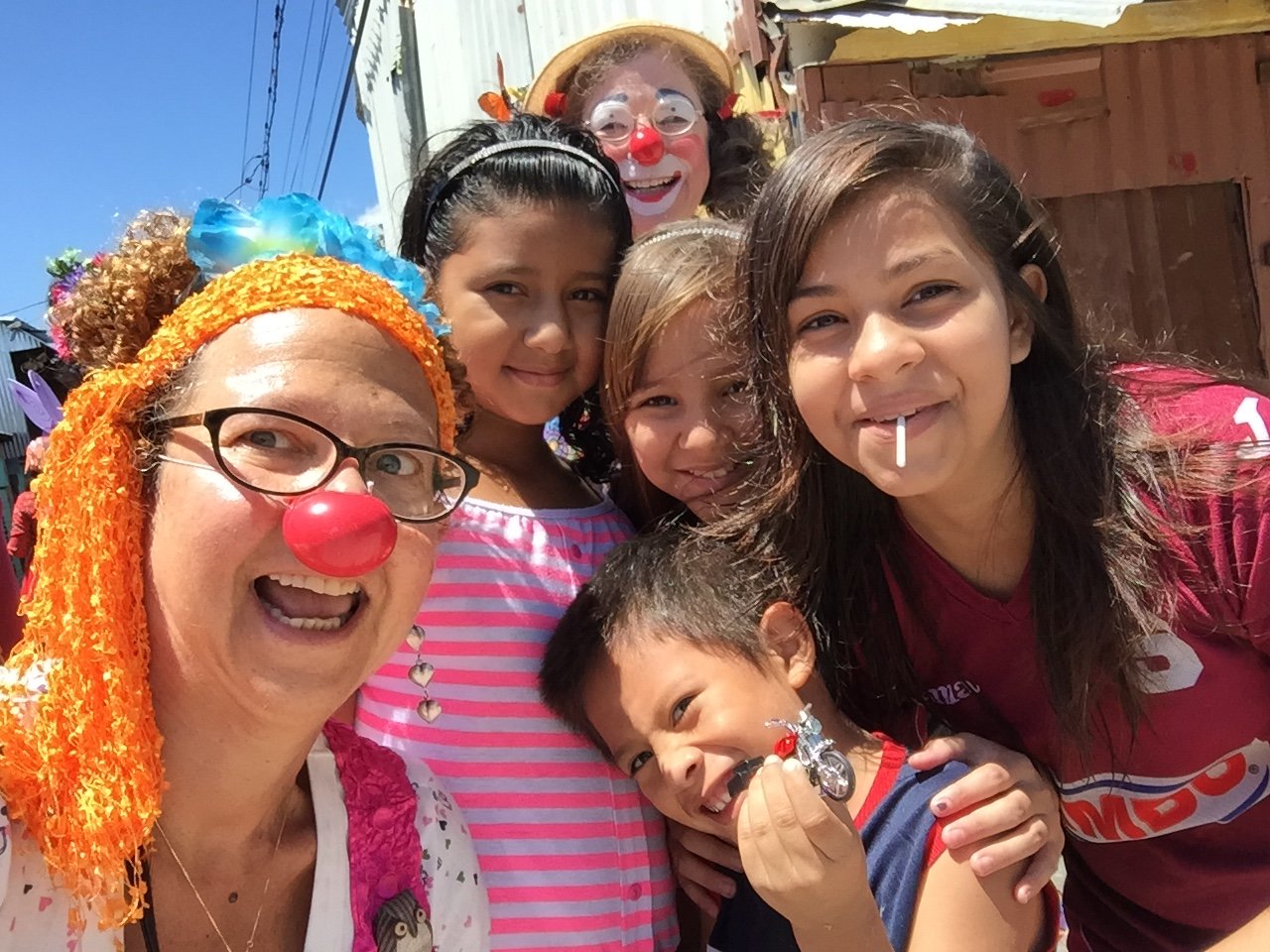
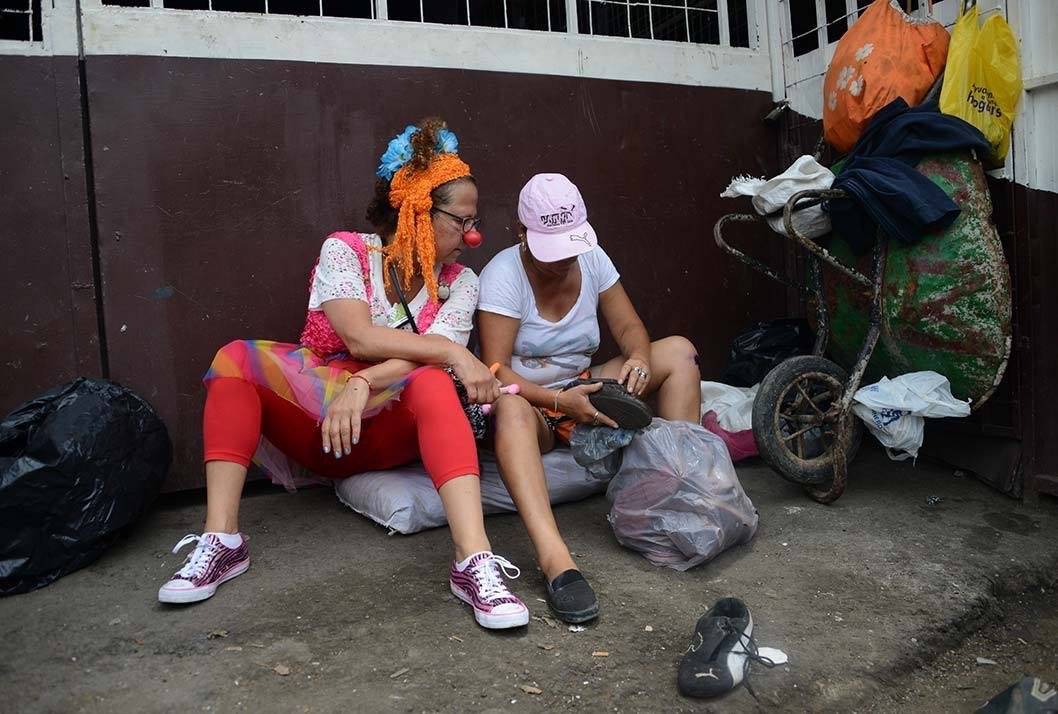
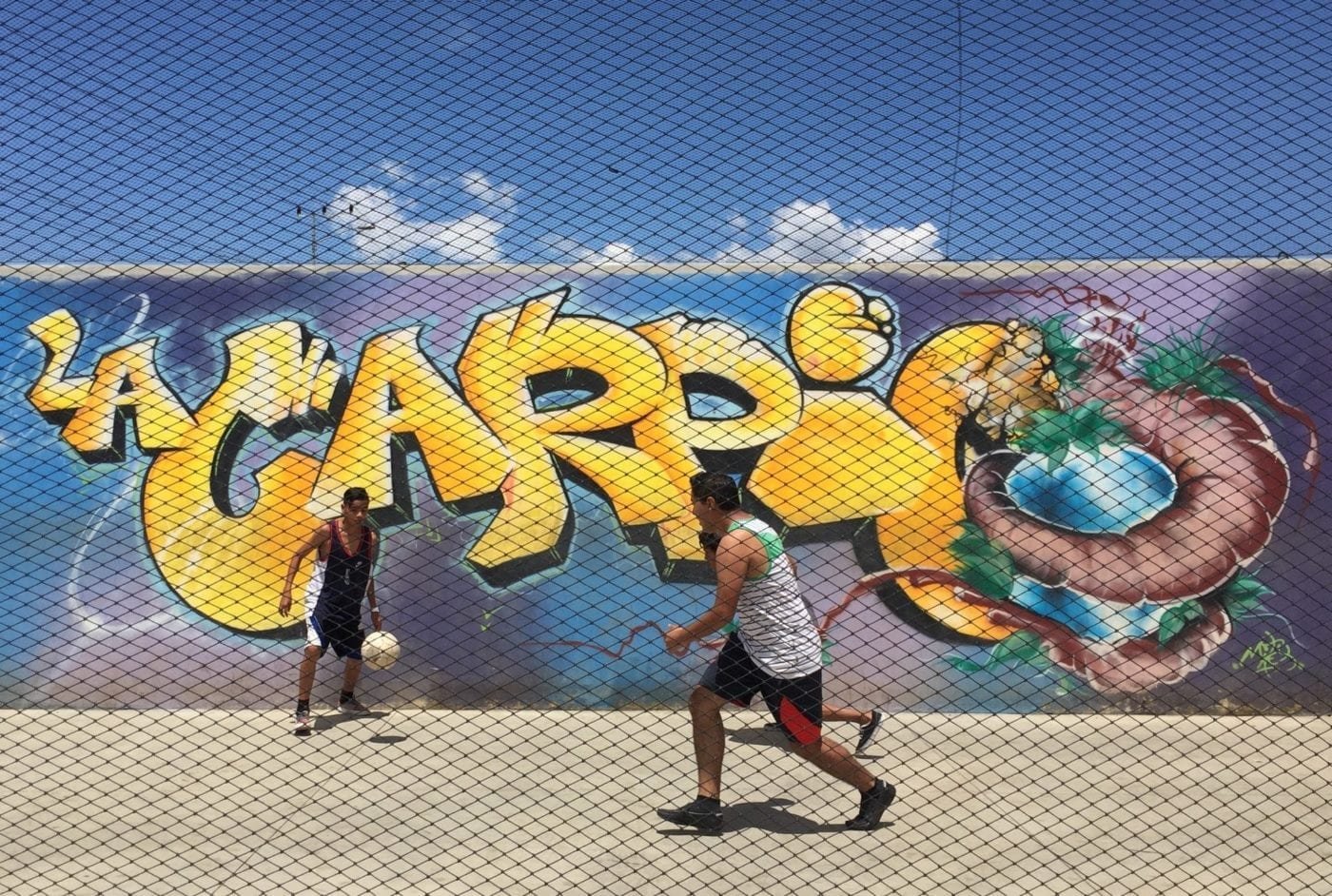
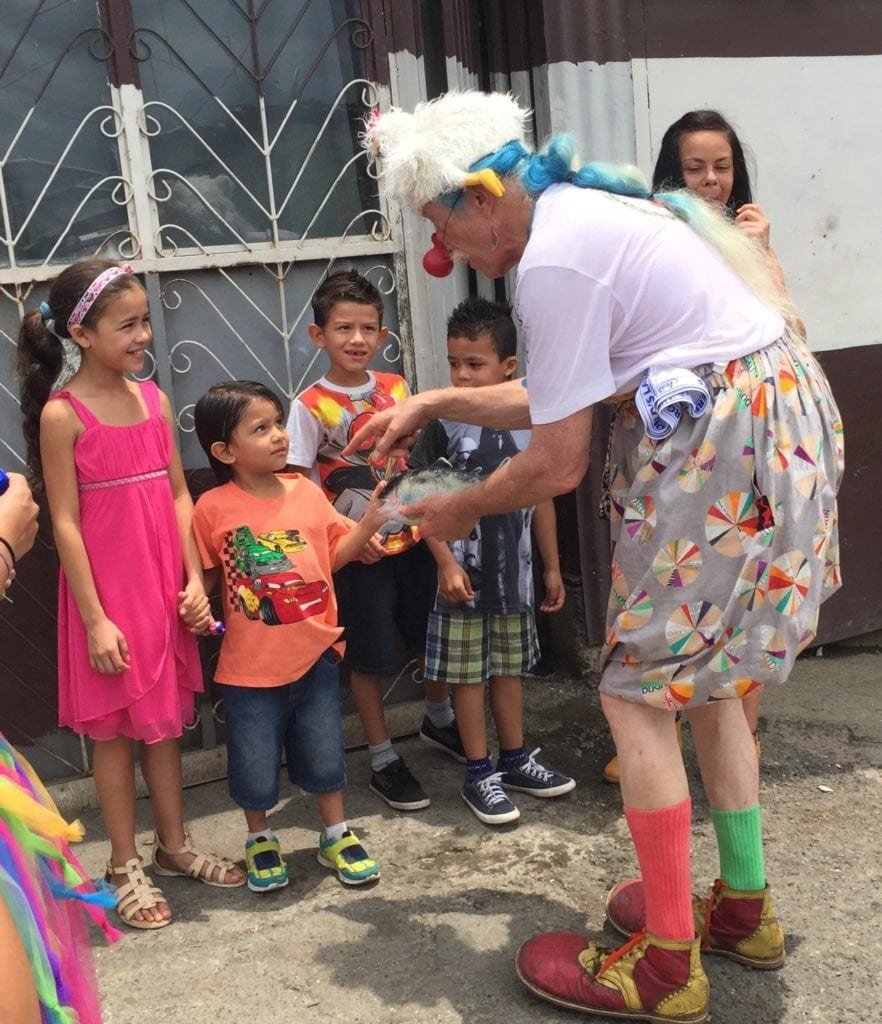
Most importantly, I learned from Patch and from my personal experience clowning in Costa Rica that care is bi-directional. We receive so much from the people we care for and clown with. They open their hearts to us. I sat with an elderly blind woman, Margarita, at the nursing home and held her hand. She began to cry and told me endless stories in Spanish that I didn't understand but I knew it was meaningful for both of us that I was there with her, listening and providing comfort and love. I felt so much energy and love going back and forth in how we held hands. Later one of the Spanish-speaking clowns told me that Margarita was talking about her mother, who had died, and the visions she was having.
I asked Patch how I might incorporate all that I've learned into my work in New York. He turned to me and said in the most emphatic and loving way, "Try being happy!"
I will end my post with these beautiful words; Patch recited this poem to me (he has memorized hours of poetry) over dinner one night:
You Start Dying Slowly by Pablo Neruda:
You start dying slowly
if you do not travel,
if you do not read,
If you do not listen to the sounds of life,
If you do not appreciate yourself.
You start dying slowly
When you kill your self-esteem;
When you do not let others help you.
You start dying slowly
If you become a slave of your habits,
Walking everyday on the same paths…
If you do not change your routine,
If you do not wear different colours
Or you do not speak to those you don’t know.
You start dying slowly
If you avoid to feel passion
And their turbulent emotions;
Those which make your eyes glisten
And your heart beat fast.
You start dying slowly
If you do not change your life when you are not satisfied with your job, or with your love,
If you do not risk what is safe for the uncertain,
If you do not go after a dream,
If you do not allow yourself,
At least once in your lifetime,
To run away from sensible advice…
